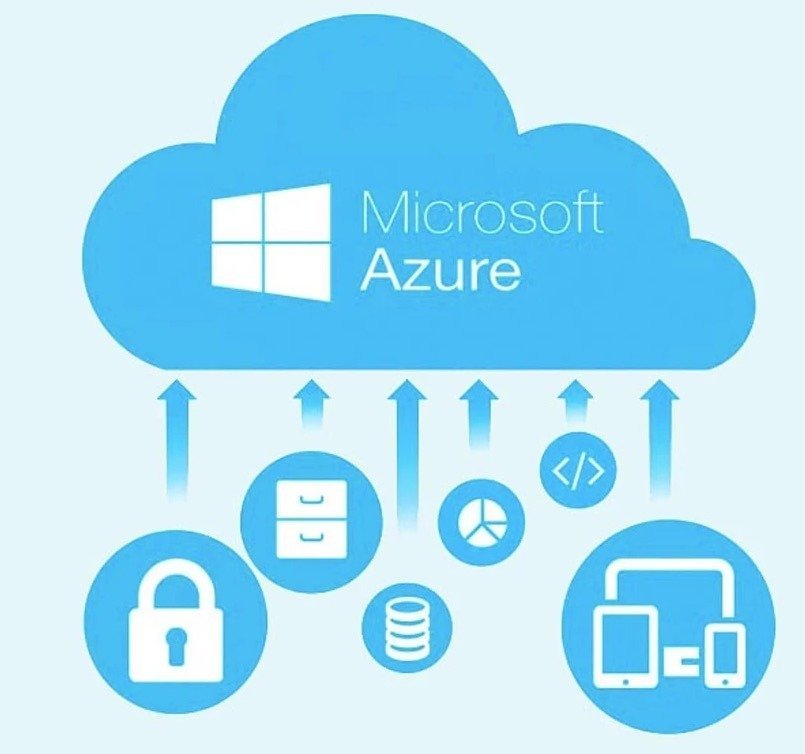✆ + 1-646-235-9076 ⏱ Mon - Fri: 24h/day
What is Microsoft Azure?


Traditionally, the only option available to companies was to build and manage the physical hardware needed for computing, including servers, disk storage, and Ethernet switches. But today, companies can use a public cloud computing platform like Azure, which purchases and maintains all the computing hardware. This means companies can effectively “rent” hardware resources as needed.
You can pick and choose among Azure’s services to get the support needed for your business operations—namely building, deploying, and managing applications. And because you’re renting the computing resources, you don’t have the costs and inefficiencies (like a dedicated IT department) associated with the physical hardware that naturally goes along with those activities.
Many companies today are choosing to use some combination of cloud computing and on-premise data centers. Some are even utilizing multiple cloud computing services depending on their needs and requirements. So if you’re concerned about making a dramatic change in your computing environment, or feel like you’re committing to a single service provider for life, don’t worry. Instead, you’ll want to focus on determining the viability of cloud computing in relation to your company’s needs. Often, designing some combination of the cloud with an existing on-premises setup is the best way to get the ball rolling.
Microsoft Azure has been experiencing exponential growth and will continue to develop new features and services.


Microsoft provides five different customer support options for Azure:
- Basic
- Developer
- Standard
- Professional Direct
- Premier
Because Microsoft Azure consists of numerous service offerings, its use cases are extremely diverse. Running virtual machines or containers in the cloud is one of the most popular uses for Microsoft Azure. These compute resources can host infrastructure components, such as domain name system (DNS) servers; Windows Server services — such as Internet Information Services (IIS); or third-party applications. Microsoft also supports the use of third-party operating systems, such as Linux.
Azure is also commonly used as a platform for hosting databases in the cloud. Microsoft offers serverless relational databases such as Azure SQL and non-relational databases such as NoSQL.
In addition, the platform is frequently used for backup and disaster recovery. Many organizations use Azure storage as an archive in order to meet their long-term Data retention requirements.
Microsoft sorts Azure cloud services into nearly two dozen categories, including:
Compute. These services enable a user to deploy and manage VMs, containers, and batch jobs, as well as support remote application access. Compute resources created within the Azure cloud can be configured with either public IP addresses or private IP addresses, depending on whether the resource needs to be accessible to the outside world.
Mobile. These products help developers build cloud applications for mobile devices, providing notification services, support for back-end tasks, tools for building application program interfaces (APIs), and the ability to couple geospatial context with data.
Web. These services support the development and deployment of web applications. They also offer features for search, content delivery, API management, notification, and reporting.
Storage. This category of services provides scalable cloud storage for structured and unstructured data. It also supports big data projects, persistent storage, and archival storage.
Analytics. These services provide distributed analytics and storage, as well as features for real-time analytics, big data analytics, data lakes, machine learning (ML), business intelligence (BI), internet of things (IoT) data streams, and data warehousing.
Networking. This group includes virtual networks, dedicated connections, and gateways, as well as services for traffic management and diagnostics, load balancing, DNS hosting, and network protection against distributed denial-of-service (DDoS) attacks.
Media and content delivery network (CDN). These CDN services include on-demand streaming, digital rights protection, encoding and media playback, and indexing.
Integration. These are services for server backup, site recovery, and connecting private and public clouds.
Identity. These offerings ensure only authorized users can access Azure services and help protect encryption keys and other sensitive information in the cloud. Services include support for Azure Active Directory and multifactor authentication (MFA).
Internet of things. These services help users capture, monitor, and analyze IoT data from sensors and other devices. Services include notifications, analytics, monitoring, and support for coding and execution.
DevOps. This group provides project and collaboration tools, such as Azure DevOps — formerly Visual Studio Team Services — that facilitate DevOps software development processes. It also offers features for application diagnostics, DevOps tool integrations, and test labs for build tests and experimentation.
Development. These services help application developers share code, test applications and track potential issues. Azure supports a range of application programming languages, including JavaScript, Python, .NET, and Node.js. Tools in this category also include support for Azure DevOps, software development kits (SDKs), and blockchain.
Security. These products provide capabilities to identify and respond to cloud security threats, as well as manage encryption keys and other sensitive assets.
Artificial intelligence (AI) and machine learning. This is a wide range of services that a developer can use to infuse artificial intelligence, machine learning, and cognitive computing capabilities into applications and data sets.
Containers. These services help an enterprise create, register, orchestrate and manage huge volumes of containers in the Azure cloud, using common platforms such as Docker and Kubernetes.
Databases. This category includes Database as a Service (DBaaS) offerings for SQL and NoSQL, as well as other database instances — such as Azure Cosmos DB and Azure Database for PostgreSQL. It also includes Azure SQL Data Warehouse support, caching, and hybrid database integration and migration features. Azure SQL is the platform’s flagship database service. It is a relational database that provides SQL functionality without the need for deploying a SQL server.
Migration. This suite of tools helps an organization estimate workload Migration costs and perform the actual migration of workloads from local data centers to the Azure cloud.
Management and governance. These services provide a range of backup, recovery, compliance, automation, scheduling, and monitoring tools that can help a cloud administrator manage an Azure deployment.
Mixed reality. These services are designed to help developers create content for the Windows Mixed Reality environment.
Blockchain. The Azure Blockchain Service allows you to join a blockchain consortium or to create your own.
Intune. Microsoft Intune can be used to enroll user devices, thereby making it possible to push security policies and mobile apps to those devices. Mobile apps can be deployed either to groups of users or to a collection of devices. Intune also provides tools for tracking which apps are being used. A remote wipe feature allows the organization’s data to be securely removed from devices without removing a user’s mobile apps in the process.
Fordewind.io is an IoT engineering and development company based in Kyiv, Ukraine. Our main areas of interest and expertise are the automotive industry and Smart Home/City projects. Contact us right now without a doubt and learn more about how we can help you build the future.